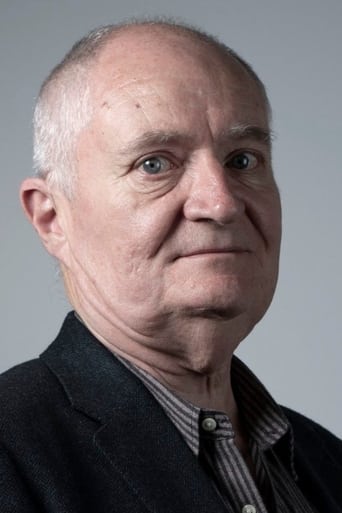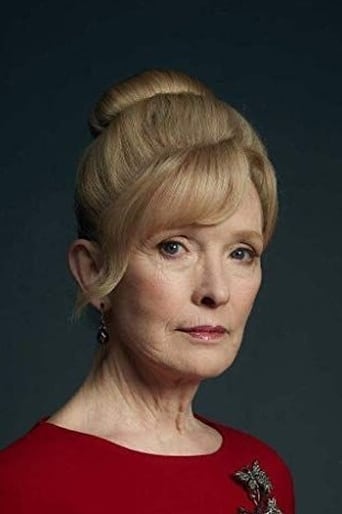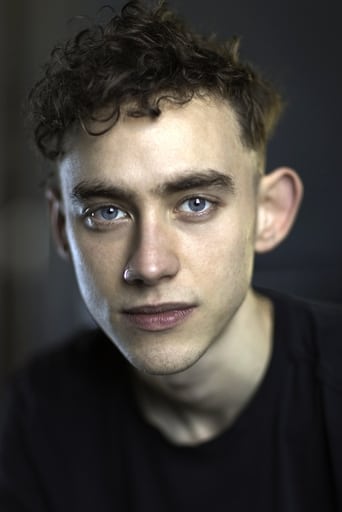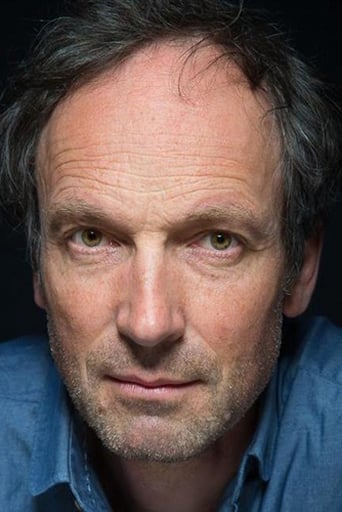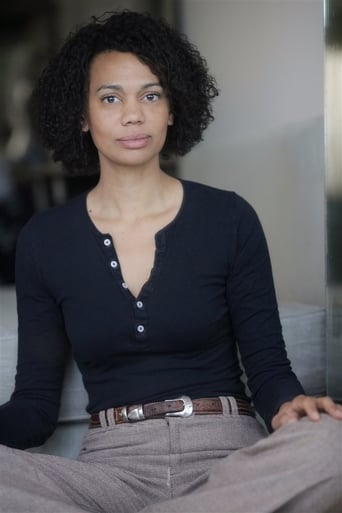Exoticalot
People are voting emotionally.
Matrixiole
Simple and well acted, it has tension enough to knot the stomach.
Bea Swanson
This film is so real. It treats its characters with so much care and sensitivity.
nqure
Meg & Nick are a middle-class couple travelling for a nostalgic trip to Paris. The first brief scene on the Eurostar sets the tone, a couple who bicker & get on each other's nerves.Paris, the city of lovers becomes an ironic background for a couple whose sense of familiarity brings contempt. A young couple walk hand-in-hand as Meg & Nick sit bickering. Paris, though, also represents the Bohemian, radical ideas & sexual liberation.Each manages to push & press the buttons that winds the other up. Meg hurts Nick physically, once in a scene that had me genuinely roaring as she pushes him away when he wants to spank her & he falls over on the cobbles, hurting his knee. As the film reaches the final act, there is a danger that she might hurt him emotionally. I didn't pick up all the Beckettian nuances on a first viewing but there are there: the (obvious) visit to the dramatist's grave at Montparnasse; the quotation; & Nick's montage containing his photo in the hotel.The first Act revolves around them walking around Paris, a visit to a restaurant before an escapade leads to the turning point where Nick bumps into an old college acquaintance, Morgan (excellently played by Goldblum). Morgan has an exciting Parisian lifestyle as a published author; a younger wife smitten with him; & a glittering circle of interesting friends. The two men even look different: one suave, smartly casual, a bundle of energy, the other bearded, bespectacled & weather-beaten. Morgan is a gourmand tucking into life with zest. At the party, Meg meets Jean Pierre, who offers the glimpse of another more radical possibility.In the final act, Meg & Nick are apart, underlining the gap between them following an argument provoked by Nick's jealousy. Meg's rancour is an antidote to Eve's, (Morgan's current wife), gushing idealism. Meanwhile, Nick encounters a teenager in his bedroom away from the party, who turns out to be Morgan's son from his first marriage. The two bond. This scene is pivotal. Nick lets slip his love & need for Meg just at the point when it looks like she could hurt him. The final set-piece is Nick's self-deprecating confessional at the dinner-table where he swats aside Morgan's effusive praise of him to reveal the true state of things in his life. What shines through is Nick's authenticity, "The self I hide in myself" & in that moment, we see that the core of the man Meg fell in love with, remains. As in 'Waiting for Godot', it's like optimism & pessimism being shackled together (The characters in Words & Music are perhaps more appropriate, the source of the quotation. I'm not familiar with the play but Nick is associated with music, Bob Dylan & Nick Drake) . Misery is funny. Yet the great tragic absurdist is also quoted by Nick on love: "Do we mean love when we say love?' The film is about a lot of darkness before the light. There is more to love. Meg is cool & detached yet she feeds Nick her soup in the first restaurant where he sits contentedly: "This is where I want to be forever." Meg soon undercuts this feeling of well-being. Before the party, she picks out a suave blazer with care. And at the party following Nick's confessional, she makes a confession of her own that salvages things between them. This becomes a positive end of sorts, though Kureishi in the foreword to his script states the end is provisional "& the questions they ask have to be confronted repeatedly".The film is, in many ways, a two-hander, a study of a marriage where each partner may want something different from the other depending on their temperament. The performances by Broadbent & Duncan capture the nuances of each of their characters. It is a suitable companion piece to Julie Delphy's witty 'Two Days in Paris". Delpy even looks like a younger Lindsay Duncan, with high cheek bones & luminous porcelain skin & cool demeanour . In that film, Delpy plays a Parisian with a neurotic American boyfriend so that the film is also about cross continent relations. Like 'Le Weekend', the couple too face an emotional turning point, and both end with each couple dancing, a temporary resolution immersed in the moment.
Franklie
Oh my goodness. We wanted to give up on this movie the whole way through. It was slow and we had a hard time connecting enough with the characters to want to watch them. We understood their angst, but they weren't likable enough to want to devote 1h30m of our lives to watching. The language was below par and the screenplay was one annoying thing after another. We made the mistake of watching it on Netflix instead of DVD. On DVD we could have watched on fast-forward. BUT.. We really like these actors and we really liked the beautiful camera shots of Paris and throwing a Tom Petty song in there helped too, so we stuck with it. The story basically shows a double nervous breakdown and the last few minutes of the film were finally fun and lovely. We'd like to see what happens next in the story, as long as that story moves along a bit quicker and the language is more appealing.
irishm
My apologies to everyone who rated it highly; maybe I just missed the point. But I really, really did not enjoy this movie. I found the characters completely unlikeable, the situations frustrating and the ending totally ridiculous. I have never disliked Jim Broadbent in anything, until now. The "sniff" scene was especially revolting. The various "skipping-out" scenarios where the couple owed money to a restaurant or the hotel didn't make sense… maybe they would have if the shared experience had changed the characters or made them grow in some way, preferably towards one another, but nothing changed. They were the same miserable so-and-sos at the end that they were in the beginning, still ball-and-chained together. It would have been preferable for them to realize that they wanted to split up and gone their separate ways; that at least would have made sense.I'm sure the endless scenes filmed on staircases were supposed to be symbolic of something, but I haven't taken the trouble to try and figure out what. By the time they got to Goldblum's place and were trudging up the stairs with the elevator passing them on its way up, my only thought was how bloody stupid can you be, marching up endless stairs when there's a perfectly good elevator right there? The woman had to have had party shoes on; there's no way a sane woman in high heels goes for five or six flights of stairs if she has any choice in the matter. Unless she's a masochist. Hey, wait… maybe I just figured out the plot.Was there anything I did like? Sure. I liked that balcony in their hotel room that overlooked the Eiffel Tower, and I liked the teenage son of Jeff Goldblum's character, who seemed to be the only person around who had any idea what was going on. That's it.
peter-ramshaw-1
Well acted and poignant at times, this movie just missed out on being great because it is too slow. Sure, I realise it's a slow burn, a noir, all that but, at the risk of repeating myself, it was just too damn slow! And, worse, no resolution. Goldblum is again great, I just wish his part had done something of substance rather than just seem lofty. Likewise the female lead whose terrific performance was marred by the writer's determination to paint her as a bitch (or at least almost). The lead actor is terrific as he always is, and that's the problem with him. He's the same as he always is. There's little originality here and he comes across as a (very) poor man's 'Lost in Translation'. Terrific cast, great idea,disappointing.

